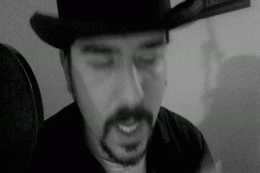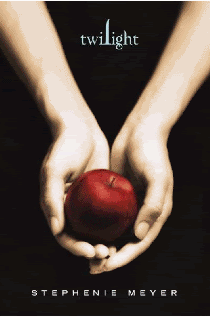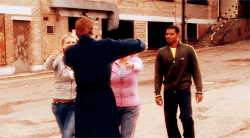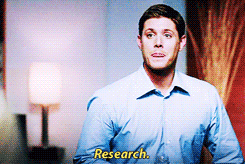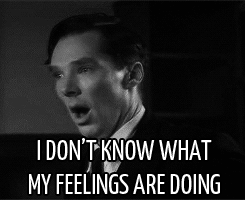What do literary agents look for in their inbox? What do they hope to find? Searching for your dream agent is part of the querying process. Unless you plan to self-publish, this is an unavoidable and important step. Every literary agent has a wish list. What they'd love to see in their inbox. Finding agents isn't an impossible feat. It's rather easy actually, and you don't even have to leave your favorite chair. Typing "literary agent" into any search engine on the internet will produce thousands of results. It's easy, but time consuming.
To help you along with this process, I thought I'd add a "work in progress" here. I'll add the represented genres and wish list of literary agents to this post in the hopes to make your hectic life just a little bit easier.
Beth Campbell BookEnds, LLC: According to the agency website, Ms. Campbell is working hard to build BookEnds client list and has a distinct flavor for fantasy/sci-fi. She's also interested in romantic suspense, cozy mysteries, and YA.
Laura Bradford Bradford Literary Agency: Ms. Bradford is actively building her client list and is currently seeking: Romance (historical, romantic, suspense, paranormal, category, contemporary, erotic), urban fantasy, women's fiction, mystery, thrillers, YA, and some select non-fiction.
Andrea Somberg Harvey Klinger, INC: Ms. Somberg's client list is quite full, however she's always looking to take on new authors. In Fiction she represents: literary, commercial, women's fiction, romance, thrillers, mystery, paranormal, fantasy, sci-fi, young adult and middle grade. On the Non-Fiction side: memoir, narrative, popular science, pop-culture, humor, how-to, parenting, self-help, lifestyle, travel, interior design, crafts, cookbooks, health & fitness, business, and sports.
Ginger Clark Curtis Brown LTD: Ms. Clark represents sci-fi, fantasy, paranormal romance, literary horror, young adult and middle grade.
Katie Reed Andrea Hurst & Associates: Ms. Reed represents all areas of young adult and adult fiction. She has a special interest in YA and fantasy. She also represents non-fiction, and has an extensive fiction and non-fiction wish list on the Andrea Hurst site. Check it out!
Cate Hart Corvisiero Literary Agency: Ms. Hart's favorite genre is historical, whether it’s Middle Grade or YA, Adult Romance or something even spicier. She will consider any genre, but is especially looking for YA Fantasy and Magical Realism. Ms. Hart has a detailed list of what she's looking for on the agency site. Check it out!
Nephele Tempest The Knight Agency: Ms. Tempest is actively building her client list, and is currently seeking: literary/commercial fiction, women’s fiction, fantasy, science fiction, romantic suspense, paranormal romance, contemporary romance, historical fiction, young adult and middle grade fiction.
Holly Root Waxman Leavell Literary Agency: Ms. Root is currently seeking middle grade and young adult fiction, women’s fiction (both commercial and upmarket), urban fantasy and romance. She also represents select non-fiction.
Suzie Townsend New Leaf Literary & Media, Inc.: Ms. Townsend is currently building her client list and is specifically looking for new adult, romance (all subgenres), fantasy (urban fantasy, science fiction, steampunk, epic fantasy) and crime fiction (mysteries, thrillers). She loves YA (all subgenres) and is dying to find great Middle Grade projects (especially something akin to the recent movie SUPER 8).
Kate Testerman kt literary: Ms. Testerman concentrates on young adult and middle grade fiction. Her interests cover a broad range including contemporary drama, urban fantasy and magical realism, adventure stories, and romantic comedies.
Clelia Gore Martin Literary Management: Mrs. Gore represents middle grade and young adult books. In YA she is particularly looking for contemporary, realistic novels, as well as "light" fantasy. She is very interested in YA memoirs featuring unique stories about extraordinary youths. In MG she is currently seeking books that have interplay between the illustrations and text. Humorous MG is her favorite.
Sarah Davies The Greenhouse Literary Agency: Ms. Davies is currently seeking fiction by North American authors, MG through YA and across all genres.
Rebecca Podos Rees Literary Agency: Ms. Podos is interested in MG and YA fiction of all kinds.
Joanna MacKenzie Browne & Miller Literary Associates LLC: Ms. MacKenzie's true passion lies in commercial fiction. She's looking for women's fiction, thriller, new adult and young adult genres.
Hannah Bowman Liza Dawson Associates Literary Agency: Ms. Bowman specializes in commercial fiction. Her interests are science fiction and fantasy, young adult, women's fiction, cozy mysteries, and romance. She is also interested in non-fiction, particularly in the areas of mathematics, science and religion (especially history and sociology of Christianity).
Kevan Lyon Marsal Lyon Literary Agency, LLC: Ms. Lyon represents women's fiction, with a special interest in commercial women's fiction. Young adult and all genres of romance.
Natanya Wheeler Nancy Yost Literary Agency: Ms. Wheeler loves to find new writers and doesn't shy away from debut talent! She's particularly interested in literary fiction that touches on current events or multicultural issues: family sagas; dark and edgy psychological thrillers and crime fiction. She also represents select non-fiction.
Laura Zats Red Sofa Literary: Ms. Zats represents middle grade, young adult, romance and sci-fi/fantasy.
Kristin Nelson Nelson Literary Agency, LLC: Ms. Nelson has an extensive detailed list of what she's currently seeking. Check it out! She represents young adult and upper level middle grade. Big crossover novels, commercial literary, upmarket women's fiction, single-title romance (especially historical), select sci-fi and fantasy.
Jordy Albert The Booker Albert Literary Agency: Ms. Albert is looking for romance (contemporary, New Adult, erotica, or historical-especially Regency). Any genre of Young Adult (especially very strong romantic element). Middle Grade (action, adventure, contemporary).
Maria Vicente P.S. Literary Agency: Ms. Vicente is looking for literary and commercial fiction, LGBT, New Adult, high-concept Young Adult, Middle Grade, high-concept Picture Books, and select non-fiction.
Jennifer Udden Donald Maass Literary Agency: Ms. Udden represents speculative fiction (both science fiction and fantasy), Urban Fantasy, and Mysteries, as well as Historical, Erotica, Contemporary and Paranormal Romance.
Rebecca Strauss DeFiore and Company LLC: Ms. Strauss is especially interested in emerging writers and developing long term relationships. She focuses on Literary and Commercial Fiction, Women's Fiction, Fantasy, Science Fiction, Romance, Mystery, Young Adult, Pop Culture and select Non-Fiction.
Diana Fox Fox Literary: Ms. Fox is currently seeking: Young Adult Fiction (all genres), Science Fiction, Fantasy, Romance, Historical Fiction, Thrillers, Graphic Novels and select Non-Fiction.
Rachel Brooks L. Perkins Agency: Ms. Brooks is actively building her client list. She is seeking Young Adult and New Adult Fiction (all genres), and Adult Romance. While she is looking for all sub-genres of romance, she is especially interested in Romantic Suspense and Urban Fantasy. She is also on the lookout for fun Picture Books.
Uwe Stender TriadaUS: Dr. Uwe Stender is interested in all kinds of commercial fiction especially: Mysteries, Young Adult, Middle Grade and Women's Fiction. He is also interested in select Literary Fiction and all kinds of Non-Fiction projects.
Becca Stumpf Prospect Agency: Ms. Stumpf is interested in Adult, Young Adult and Middle Grade literary and commercial fiction. In YA and MG she is especially looking for spine-tingling mysteries (historical or contemporary). YA thrillers, Fantasy and Sci-Fi. In Adult she is literary mysteries, thrillers, Sci-Fi, Fantasy, and spicy Romance novels (Contemporary, Historical, Sci-Fi, Urban Fantasy, Steam Punk).
Ann Behar Scovil Galen Ghosh Literary Agency: Ms. Behar is seeking Children's books, from Picture Books to Young Adult.
Jim McCarthy Dystel & Goderich Literary Agency: Mr. McCarthy is interested in both literary and commercial works in Adult and Young Adult categories. He is particularly interested in Literary Women's Fiction, underrepresented voices, Mysteries, Romance, and Paranormal Fiction. He is also interested in narrative Non-Fiction, Memoir, and Paranormal Non-Fiction.
Ethan Ellenberg The Ethan Ellenberg Literary Agency: Mr. Ellenberg is interested in all kinds of literary and commercial fiction, including Thrillers, Mysteries, Children's, Romance, Women's Fiction, Ethnic, Science Fiction, Fantasy and general fiction. He is also interested in select Non-Fiction.
Paula Munier Talcott Notch Literary Services, LLC: Ms. Munier is interested in Mystery, Thriller, Science Fiction, Fantasy, Romance, Young Adult, Memoir, Humor, Pop Culture, Health & Wellness, Cooking, Self Help, Pop Psych, New Age, Inspirational, Technology, and Science. She's very involved with the mystery community, so if you write crime fiction, send it along.
Margaret Bail Inklings Literary Agency: Ms. Bail is only interested in Adult Fiction in the follow genres: Romance (all subgenres except Christian or Inspirational), Mystery, Thrillers, Historical Fiction, Westerns, and Fantasy. Ms. Bail is also interested in select Non-Fiction.
Wendy Sherman Wendy Sherman Associates, Inc.: Ms. Sherman is interested in women's fiction, historical dramas, and suspense. She is also interested in select Non-Fiction.
Alyssa Reuben Paradigm Talent Agency: Ms. Reuben is seeking Literary Fiction, Chic Lit, Commercial Fiction, Women's Fiction, Humor/Satire, Romance, Family Saga, Historical Fiction, Young Adult, Multi-Cultural, Adventure, Offbeat/Quirky, and Middle Grade. She also represents select Non-Fiction.
Jodi Reamer Writers House: A Literary Agency: Ms. Reamer is interested in General Fiction, Mystery, Romance, Fantasy, Science Fiction, Young Adult, Middle Grade and Children's Books. She is also interested in select Non-Fiction.
Laura Rennert Andrea Brown Literary Agency, Inc.: Ms. Rennert is seeking upper Middle Grade and Young Adult Fiction. She's drawn to Contemporary, Multi-Cultural, Alternate Histories/Realities, Fantasy, Paranormal, Science Fiction, Thrillers and Horror.
Christine Witthohn Book Cents Literary Agency: Ms. Witthohn is currently seeking well-written Romance (category or single title), a high-concept, voice driven domestic Thriller, and a smart, sexy New Adult Thriller. She also represents Romance (Contemporary, Paranormal, Romantic Comedy, Mystery/Suspense), Young Adult and New Adult, Women's Lit, Mainstream Mystery/Suspense, Thrillers, and Literary Fiction. She also represents select Non-Fiction.
Karen Solem Spencerhill Associates, Ltd.: Ms. Solem is seeking Literary and Commercial Fiction, and Non-Fiction, primarily for the adult market. She especially loves southern Women's Fiction, and given her passion for animals, seeks any work involving dogs, horses or the natural world.
Emmanuelle Morgen Stonesong: Ms. Morgen represents Adult and Children's Fiction, as well as memoir and select narrative and prescriptive Non-Fiction books. In children's books, she primarily represents Young Adult. In Adult books she represents General fiction, Women's Fiction, Romance, Historical and Mystery.
Miriam Kriss Irene Goodman Literary Agency: Ms. Kriss focuses on Commercial Fiction, and represents everything from hardcover Historical Mysteries to all sub-genres of Romance, from Young Adult Fiction to Urban Fantasy, and everything in between.
Beth Phelan The Bent Agency: Ms. Phelan represents Young Adult Fiction, Romance, and select Commercial and Literary Adult Fiction. She also represents select Non-Fiction.
Pam Van Hylckama Vlieg D4EO Literary Agency: Ms. Van Hylckama Vlieg is seeking Genre Fiction, as well as Middle Grade, Young Adult, and New Adult Fiction.
Reiko Davis Miriam Altshuler Literary Agency: Ms. Davis is interested in both Literary and Commercial Fiction. In Children's books, she loves Young Adult and Middle Grade Fiction--whether Contemporary, Historical, or Fantasy. Ms. Davis also represents select Non-Fiction.
Christina Hogrebe Jane Rotrosen Agency: Ms. Hogrebe represents General Fiction, Mystery, Romance, Suspense/Thriller, Juvenile Fiction, Women's Fiction, Historical Fiction, and Young Adult Fiction.
Monika Verma Levine Greenburg Rostan Literary Agency: Though Ms. Verma's client list is primarily Non-Fiction, she also enjoys working on Young Adult Fiction, whether it's Paranormal, Historical, or Contemporary.
Greg Aunapu Salkind Literary Agency: Mr. Aunapu is interested in Commercial Fiction, Historical, Thriller/Suspense, Mystery, Detective, Adventure, Humor, Science-Fiction, and Fantasy. He also represents select Non-Fiction.
Amanda Panitch Lippincott Massie McQuilkin: Ms. Panitch is currently seeking Young Adult and Middle Grade Fiction and Non-Fiction across all genres.
Valerie Noble Donaghy Literary Group: Ms. Noble is seeking Young Adult and New Adult Fiction in the following areas: Science Fiction, Fantasy, Historical Fantasy and Historical Fiction.
Caitlen Rubino-Bradway LKG Agency: Ms. Rubino-Bradway is building her client list. She is currently seeking Middle Grade and Young Adult Fiction. In teen novels, Sci-fi/fantasy is her sweet spot.
Rena Rossner The Deborah Harris Agency: Ms. Rossner is most interested in Israeli writers of Fantasy and Science Fiction, but she will also look at Sci-fi/fantasy with Jewish content from writers all over the world. She also represents Middle Grade and Young Adult Contemporary stories by Israeli authors or with Jewish content or theme. She would love to find a
New Adult or Adult novel written about the Israeli army (LGBQT also!) Also, historical fiction set in Ancient Israel, or historical fiction with Israeli/Jewish content and themes - for Adults/Middle Grade/Young Adult. She is also willing to look at literary novels set in the Middle East - historical fiction, fantasy, and especially multicultural romances.


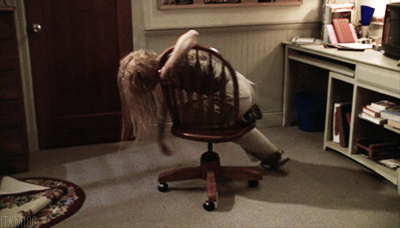
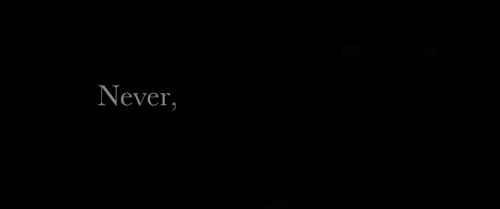
 Gone With The Wind by Margaret Mitchell received 38 rejections before publication.
Gone With The Wind by Margaret Mitchell received 38 rejections before publication. Anne Frank's The Diary Of A Young Girl was rejected 15 times.
Anne Frank's The Diary Of A Young Girl was rejected 15 times.  Lord Of The Flies by William Golding received 20 rejections before it was published.
Lord Of The Flies by William Golding received 20 rejections before it was published. A Time To Kill by John Grisham was rejected by 12 publishers and 16 agents before it was published.
A Time To Kill by John Grisham was rejected by 12 publishers and 16 agents before it was published. Agatha Christie waited 4 years for her first book to be published.
Agatha Christie waited 4 years for her first book to be published.  Stephenie Meyer's Twilight was rejected 14 times.
Stephenie Meyer's Twilight was rejected 14 times.  The Notebook by Nicholas Sparks received 24 rejections before publication.
The Notebook by Nicholas Sparks received 24 rejections before publication.  J.K. Rowling was rejected 12 times and was told "not to quit her day job." If it wasn't for a CEO's eight-year-old daughter, who begged her father to print the book, we may still be waiting for Harry.
J.K. Rowling was rejected 12 times and was told "not to quit her day job." If it wasn't for a CEO's eight-year-old daughter, who begged her father to print the book, we may still be waiting for Harry. Stephen King's Carrie received 30 rejections before being published.
Stephen King's Carrie received 30 rejections before being published.  And last but not least, Louis L'Amour received 200 rejections. That's not a misprint, two hundred!
And last but not least, Louis L'Amour received 200 rejections. That's not a misprint, two hundred!